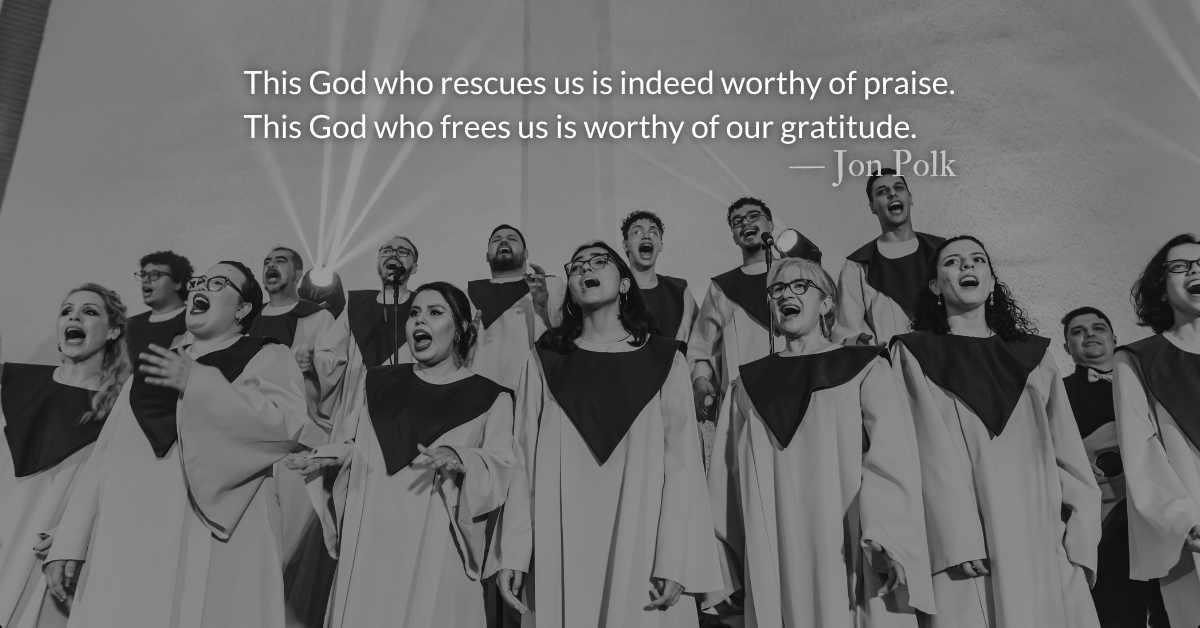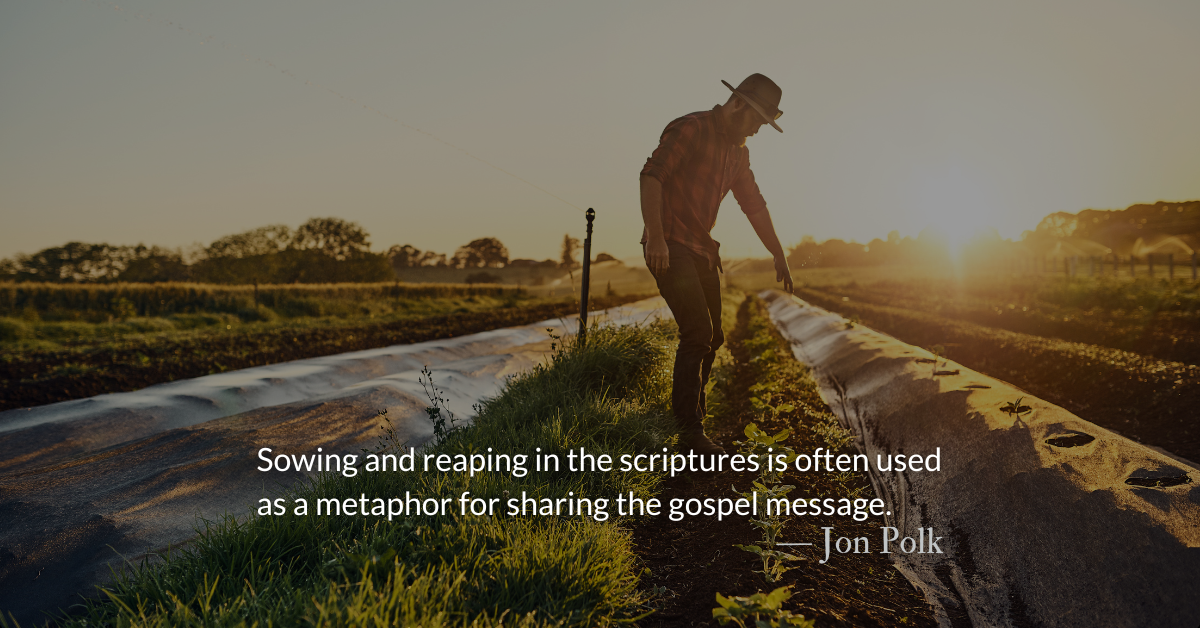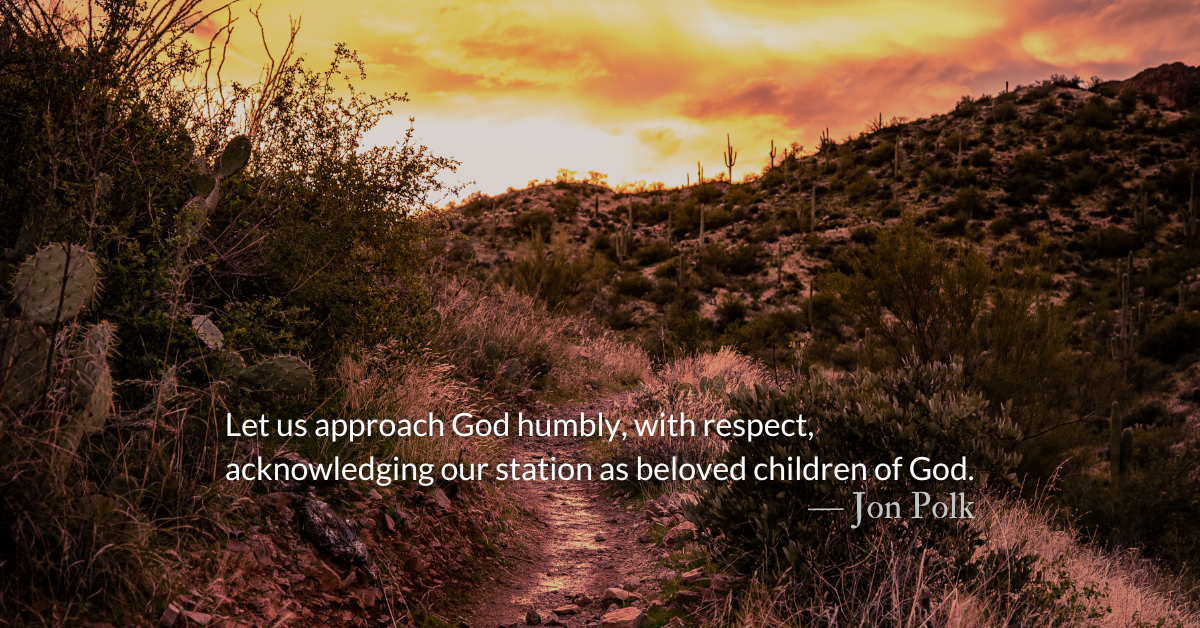Scripture Focus: Psalm 91:1-4
1 Whoever dwells in the shelter of the Most High
will rest in the shadow of the Almighty.
2 I will say of the Lord, “He is my refuge and my fortress,
my God, in whom I trust.”
3 Surely he will save you
from the fowler’s snare
and from the deadly pestilence.
4 He will cover you with his feathers,
and under his wings you will find refuge;
his faithfulness will be your shield and rampart.
Reflection: We Gather Together – Hymns for Giving Thanks
By Jon Polk
How did a Dutch patriotic song from the late sixteenth century, celebrating the Netherlands’ freedom from Spanish rule, become one of the hymns most often associated with American Thanksgiving?
The opening line of We Gather Together surely influenced its usage as a Thanksgiving hymn.
We gather together to ask the Lord’s blessing
Written by Dutch poet and composer Adrianus Valerius in 1597, the hymn was not translated into English in the United States until it was adapted by Theodore Baker in 1894.
Originally, the hymn celebrated the end of the Dutch War of Independence from Spain. The opening line highlighted the fact that under Spanish rule, Dutch Protestants were forbidden to gather for worship. The hymn specifically gives thanks to God for the end of the conflict, but also speaks generally of God’s providence in all the trials and challenges of life.
He chastens and hastens His will to make known.
The wicked oppressing now cease from distressing.
Sing praises to His Name; He forgets not His own.
Theodore Baker, an organist and musicologist from New York, studied for his doctorate in Germany and translated the hymn from German for a new anthem called Prayer for Thanksgiving, thus encouraging its usage at Thanksgiving and for local town celebrations.
By the first World War, the hymn’s militant language, such as “the wicked oppressing now cease from distressing” and “from the beginning the fight we were winning,” increased its popularity in America during those uncertain times.
The third and final verse, however, speaks more broadly of the cosmic conflict which one day God will bring to a close.
We all do extol Thee, Thou Leader triumphant,
And pray that Thou still our Defender will be.
Let Thy congregation escape tribulation;
Thy Name be ever praised! O Lord, make us free!
The hymn, which at its beginning speaks of the simple blessing of gathering together as Christians to worship God, takes us through a realization that we will experience difficulties in life, and ends with a hopeful resolution that God will ultimately rescue us and make us free.
Beside us to guide us, our God with us joining,
Ordaining, maintaining His kingdom divine
This God who rescues us is indeed worthy of praise. This God who frees us is worthy of our gratitude. This God who leads us through the challenges of life is worthy of our humble adoration.
Thy Name be ever praised! O Lord, make us free!
Divine Hours Prayer: The Request for Presence
Gladden the soul of your servant, for to you, O Lord, I lift up my soul. — Psalm 86.4
– From The Divine Hours: Prayers for Summertime by Phyllis Tickle.
Today’s Readings
1 Chronicles 17 (Listen 4:14)
Psalms 91 (Listen 1:39)
Tomorrow’s Readings
1 Chronicles 18 (Listen 2:36)
Psalms 92-93 (Listen 2:09)
Read more about A Thanksgiving
Deny me wealth, fear, far remove
The love of power or name;
Hope thrives in straits, in weakness love,
And faith in the world’s shame.
Read more about Supporting Our Work
Support ad-free content that brings biblical devotionals to inboxes across the world. Give an end-of-year donation or join our monthly donors.











